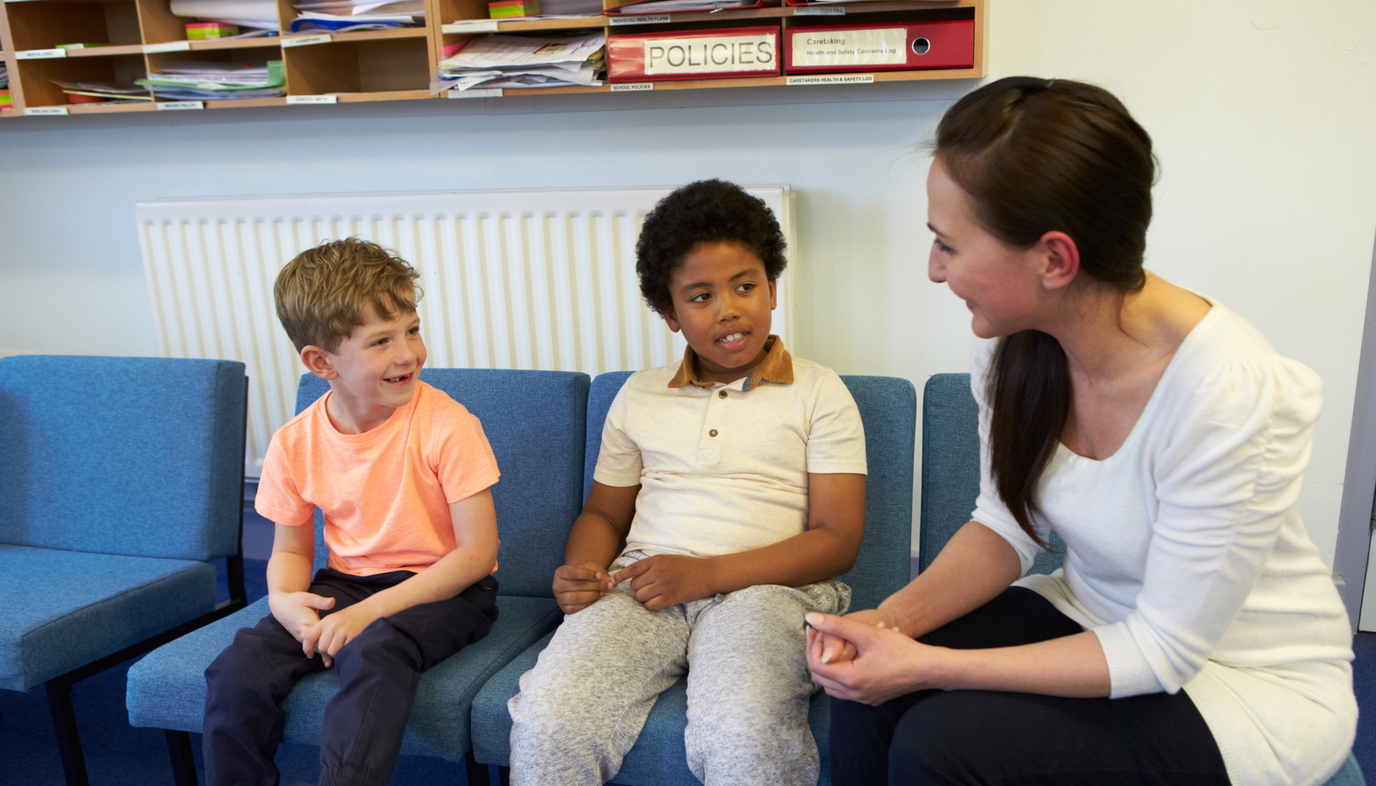
Do you have a well-thought-out discipline system in place in your family? Most parents don’t. Often parents simply discipline the way they themselves were disciplined. Some choose to do just the opposite and pick a discipline style that is contrary to how they were raised.
The discipline techniques that parents use today are often filled with myths, misunderstandings, and misinterpretations. In this short true/false quiz we intend to challenge you to examine your understanding of discipline and the beliefs upon which you base your discipline decisions. Hopefully, this activity will help you strengthen your own personal parenting style.

Take the Discipline Quiz
Mark each of the statements below true or false. The answers will appear at the end of the quiz.
1. Discipline has to be immediate or the effect will be lost and the child will simply repeat the behavior.
2. When you implement a discipline strategy, the child needs to know that you are angry.
3. When you discipline, it is important to point out the pattern of a child’s behavior.
4. Consequences need to be severe to be effective.
5. Children learn more quickly from punishment than they do from consequences.
6. Parents need to be in control of their children, and discipline strategies are the way to stay in control.
7. Children have to know they were wrong for discipline to be effective.
8. Discipline strategies are effective only if they get the child to comply.
9. Physical punishment teaches children important lessons.
Answers:
1. False
Discipline can be effective whether it is immediate or delayed. How you discipline is more important than when you do it. You might want to take fifteen or twenty minutes to think through how you want to respond to a particular behavior. It could be important to wait until later to discuss options with your partner. Helping children see the cause and effect relationship that exists between the choices they make and the consequences that result from those choices is more important than whether the consequences occur immediately or the next day.
2. False
Anger is not helpful in a discipline situation. When you discipline in anger, the child’s attention focuses on your strong emotion. He looks outward to the person applying the discipline rather than inward to his own internal reaction to the results of the choice he made.
3. False
How many times a behavior occurred in the past is unimportant. The focus of any effective discipline system is the present behavior. The past is over. The present moment is the only place where learning can take place. Focus only on the now.
4. False
It’s not the severity of a consequence that has the impact. It’s the certainty. The certainty that specific, logical consequences follow certain actions allows children to trust the discipline process. Your consistency in implementing consequences is the glue that holds a discipline strategy together. When the consequence occurs consistently, children can count on it and plan accordingly.
5. True and False
While it’s true that punishment may get a quicker response in a specific instance, it’s the consistent implementation of consequences that produces long-term behavior change in children. With punishment, the child is more likely to focus on you, your behavior, or your anger than on himself and the results of the choices he made. Learning rarely results from punishment because children are too busy acting out resentment, resistance, and reluctance. They’re more likely to spend their time thinking of revenge fantasies and how not to get caught next time than about the cause and effect relationship between their behavior and the consequences that followed.
6. False
Effective discipline calls for parents to structure consequences in a way that puts the child in control and allows him to feel responsible for the outcomes that result from his actions. Effective consequences are not used to control, manipulate, demonstrate power, or get even. Attempting to use consequences for control crosses the line and becomes a punishment.
When children perceive that they’re in control of whether or not they experience consequences or outcomes, they are empowered. They learn to see themselves as the cause of what happens to them. They realize that they personally create the results that show up in their lives by the choices they make. For discipline to be effective, it’s necessary for children to feel they have power and control.
7. False
Making children feel wrong for their behavior is counterproductive to raising responsible children. An effective discipline system does not make children right or wrong for their behavior. It simply holds them accountable for it. Blaming and faultfinding don’t help children learn how to make different choices and behave differently in the future. Fixing the problem is more important than fixing blame. Join with your children in the search for solutions and model for them that you value solving problems more than you do assigning blame and handing out punishments.
8. False
A child’s compliance or noncompliance has nothing to do with the effectiveness of a discipline system. When discipline strategies demand compliance, as when the parent keeps increasing the severity of the punishment until the child complies, children learn that adults have power and they don’t.
When we choose to use consequences, the aim isn’t to make the child comply. The goal is to present choices, allow her to choose, and give her room to learn from the results of that choice. With the consequence system, children learn a lesson from either positive or negative outcomes.
9. True
It teaches you children that might makes right. It teaches them that bullying behavior is appropriate. It teaches them that you are an unskilled parent who has only limited tools in your parenting toolbox. It teaches them that when they get bigger they can hit other people. It teaches them that violence is a good way to solve problems.
How did you do on the discipline quiz? It doesn’t matter whether all your answers agreed with ours or if you had each item marked differently than we did. What matters is if this quiz helped you examine your beliefs about discipline. Did you approach it with an open mind? Did you consider each item to see if there was meaning there for you? If so, you passed the test.
About the Authors
Chick Moorman and Thomas Haller are the authors of The Only Three Discipline Strategies You Will Ever Need: Essential Tools for Busy Parents and The 10 Commitments: Parenting with Purpose
. They are two of the world's foremost authorities on raising responsible, caring, confident children. They publish a free monthly e-zine for parents. To sign up for it or obtain more information about how their forthcoming internet radio show can help you transform your parenting style, visit their website today: www.personalpowerpress.com.

